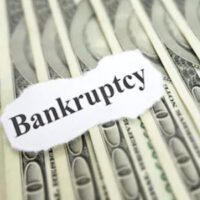How Does Florida’s Homestead Exemption Protect Me in Bankruptcy?

The purpose of bankruptcy is two-fold. First, it enables you to discharge–i.e., eliminate your legal obligation to pay–many if not all of your outstanding debts. Second, it ensures you retain enough property to make a “fresh start.”
On this second point, federal and state law allows you to keep or “exempt” certain property. If property is exempt, that means it cannot be sold without your consent to pay your debts. Federal bankruptcy law contains a default set of exemptions. But many states, including Florida, have their own exemptions that residents must use instead.
The Homestead Exemption
Fortunately, Florida has some very generous exemptions. One of the most notable is its homestead exemption. A “homestead” refers to real property that you use as your primary residence. Under the federal exemptions, the homestead exemption is limited to a certain amount of equity, currently $25,150. This means that if your home is worth more than $25,150, the bankruptcy court could order the property sold, with you getting to keep just $25,150 from the proceeds of the sale.
But again, Florida’s homestead exemption overrides the federal exemption. And Florida exempts an unlimited amount of equity in a homestead. In other words, you can keep your home, regardless of its value, during and after bankruptcy. The only restriction relates to the size of your property. In municipalities, the homestead exemption cannot exceed one-half acre of property. In all other parts of the state, the exemption cannot exceed 160 acres.
There is also a minimum period of ownership requirement to claim the Florida homestead exemption. You must have owned the property for at least 1,215 days (about 3.3 years) prior to filing for bankruptcy. So if you purchased your home, say, just one year before filing for Chapter 7 bankruptcy, you cannot claim Florida’s unlimited homestead exemption. You can still, however, claim the federal exemption of $25,150.
One other thing: The homestead exemption, whether federal or state, only applies to the equity you actually have in your home. It does not include any mortgage debt attached to the property. And even if you receive a discharge from the bankruptcy court, the lender can still foreclose on your home if you are not current on your mortgage payments
What If I Do Not Own a Home?
If you are a renter or otherwise do not own your home, you cannot claim the homestead exemption. But as a consolation prize, you can exempt other property. Florida provides a $4,000 “wildcard exemption” to any debtor who does use the homestead exemption. This can be used to protect any other property you may wish to keep, including cash.
Speak with a Florida Bankruptcy Lawyer Today
There are a number of other bankruptcy exemptions that can protect you and your family. An experienced Miami Chapter 7 bankruptcy lawyer can walk you through each of the state exemptions and how they might apply to your case. Contact the Law Office of Julia Kefalinos today to schedule a consultation.
https://www.kefalinoslaw.com/when-can-you-discharge-an-unpaid-tax-bill-in-bankruptcy/

